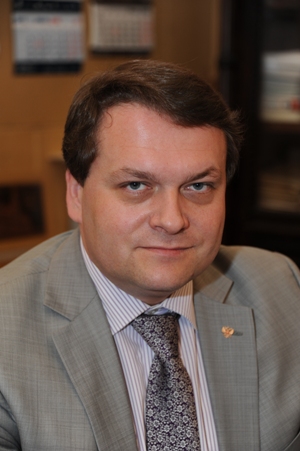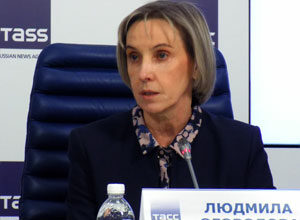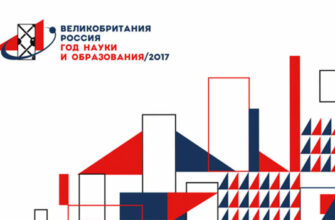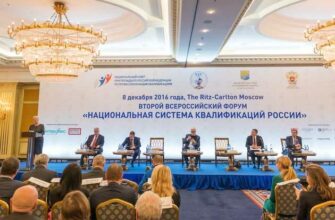According to the press service of St. Petersburg University (SPBU), on 17 January 2017 it provided the first candidate thesis defense according to the rules of the University, which received the right to award its own degrees from the President of the Russian Federation, along with Moscow State University (MSU).
Graduate student Bakhtiyor Alimjanov presented a thesis and received the title of candidate of historical sciences, his thesis dedicated to the economic policy of Russia in Turkestan in the 2nd half of XIX – beginning of XX century was considered in public way by the international commission. But, according to the rules of St. Petersburg state University, then it will take 3 months for public examination in the portal for the final confirmation of the title of candidate of historical sciences.
As told to cultural-political magazine “E-Vesti” the press-secretary of the St. Petersburg State University Alexey Zavarzin, one of the two leading universities in the country is working on the return of the international authority to the Russian scientific degrees and is fighting for the quality of Russian education in general. Read more about the methods and the strategic objectives of the reforms of the University described below.
E-Vesti: Alexei, in May 2016 Vladimir Putin signed a decree giving the Moscow state University and St. Petersburg state University the right to authorize candidate and doctoral thesis defense by their own rules. Tell me, please, what is the essence of innovation?
Zavarzin A.: First of all, it’s a return to what has been in the past, but on a new level.
For universities it is important for several reasons. First of all, from the point of view of the international context. Worldwide leading universities award degrees by own rules and are personally responsible for this award. And the way how Saint-Petersburg University has developed rules for the preparation and conduct of the defense of the dissertation for the academic degree, corresponds to global rules. This eliminates the problem of recognition of scientists awarded in our University. This is not a secret that in many countries there is a problem of recognition for people the candidate degree of certain sciences as the degree of doctor of philosophy (PhD), adopted in the world. The same applies to doctoral degrees and their recognition. This was largely due to the fact that the modalities of protection differ.
The second moment is our domestic context. It is no secret that in recent years there have been many controversial cases of detection of thesis, its quality is not corresponding to the scientific level; in fact they were plagiarized. This is largely determined standard procedures that were adopted. They are not transparent and do not allow for timely and adequate quality control. Therefore, our task now is to restore confidence in the academic degrees that are awarded using procedures for maximum transparency. That’s what we went having a corresponding right.
EV: How is providing the thesis now at the University?
Zavarzin A.: Currently, in order to defend the thesis at St. Petersburg University, you must submit the thesis containing of publications of the author or of the applicant in refereed scientific journals – they may be published or accepted for publication; it shows the quality of the work. For every thesis its own dissertation Council is created. Earlier the Commission on thesis was created for a few years at the various scientific establishments, and now we have a Council formed under each thesis, it consists only of professionals on the topic of this particular research of the applicant. Also among them must be a foreign scholar, and representatives of various Russian institutions besides St. Petersburg state University. The members of the Council must be recognized specialists responsible for the decision with their reputation.
The first award under the new rules was held on 17 January 2017. In the composition of the dissertation Council there was 5 scientists, including one foreign Professor from Nazarbayev University (Kazakhstan), previously a graduate fellow at the Oxford University. Russian scientists were presented by professors from St. Petersburg state University and other universities.
In the standard system tips for each thesis is assigned to 2 of the opponent, which means the thesis is known only to the two scientists, and others in fact listen to their opinions. Now all Council members are required to read the thesis, to write a review and to participate in the discussion during the defense.
The important point is that the protection is held in two languages, Russian and English. This is done in order to attract also the global scientific community who could study both the thesis and the procedure of protection by broadcast online on the Internet.
For example, I have not had a possibility to spend more than 2 hours to attend the defense on January 17. Part of the time I’ve been tracking its progress on my iPad watching the stream. This could be done both in Russian and English languages.
It turns out that in the new system there is simply no options for any dishonest action.
EV: That implies responsibility the academic reputation, perhaps we are talking about the specific mechanisms, sanctions or other consequences for a scientist?
Zavarzin A.: The academic reputation is one of the core values, in addition to intelligence. After all, if you are dishonest in your actions, then the academic community learns it and you are, in fact, become an outcast. You lose the ability to work, to interact with colleagues, accordingly, to be successful in science and professional activities.
So there is any sanctions imposed by the University. Our task is to arrange the procedure in such a way, that it leaves no possability for dishonest actions.
EV: The first award of the St. Petersburg state University by own rules, held on 17 January 2017, was devoted to the study of the CIS and included the Commission within Eurasia. Tell me, please, regional outline conceived in the framework of the CIS, or we think globally and it includes Europe too?
Zavarzin A.: On January 17 was held the first defense in the framework of changed legislation, but for us it is not a first defense up to these rules. In 2013 SPBU, by own initiative, made possible the defense of a thesis for the degree of PhDSaint-Petersburg University. It was not the equivalent of a PhD thesis, but we introduced a procedure, which is now in use for candidate’s and doctoral degrees in connection with the changed legislation. Now, we have passed 13 protection, and facilities to the members of dissertation councils covering almost the whole world. There were colleagues from the US, Europe and Japan.
It all depends on what the topic is protected the dissertation, where we work key specialists in this field. On the subject, which was defended on January 17, leading experts are represented in Kazakhstan and Russia.
EV: I suspect that all universities would be interesting to do so, because it opens up scientific horizons?
Zavarzin A.: Of course. If in the previous version we have a third of the experts on the subject of protection from 25, but just one or two of them are experts in your area, 1-2 of these scientists can debate. Here, when the Council includes specialists in the study area, there is an interesting and fruitful discussion. If you’re successful, and you have a good understanding of your topic, you immediately earn a reputation in your professional community. Although, of course, it is harder to defend.
EV: In modern language, it is also a powerful public relations. But do I understand correctly that in international practice the system works only for larger universities with a high reputation?
Zavarzin A.: In most developed countries, not all universities have the right to implement PhD programs and, accordingly, to award the degree. I think that Russia is moving in this direction. The University by the quality of its research must get the right to open graduate programs and to award the corresponding degree.
EV: Do I understand correctly that the graduates of smaller schools will be able to go to, for example, Saint Petersburg state University?
Zavarzin A.: High school in the small town is equivalent to maybe a College in Western countries where people receive a basic undergraduate education. After that, the best of them can come to the next level, for example, in the magistracy of the Federal universities, and to graduate school in the University. That is the prospect of real, serious development of educational projects, which can provide Russia with highly qualified personnel.




